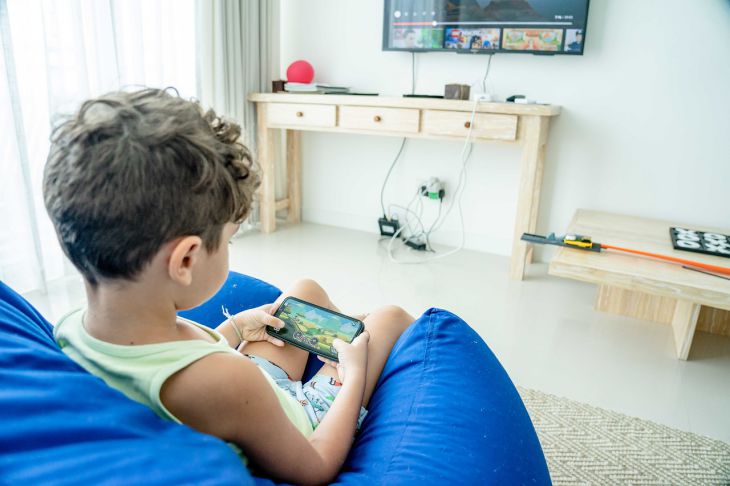Children and Gadgets: 7 Principles of Healthy Relationships
Electronic gadgets have become an integral part of everyday life, and children are at risk of becoming addicted to them.
Spending endless time in front of a screen can negatively impact their physical and psychological development.
However, instead of completely banning the use of gadgets, there are ways to benefit from this addiction.
What can be done
Fighting gadgets is futile, they will always win. If you ban gadgets at home, children will find them at their friends' or in a computer club. Lyudmila Artyushkevich, a doctor at the HappyDerm medical center, notes that it is important to act more cunningly, because bans will not achieve anything.
If parents want to be close to their children, they need to pay enough attention from the very beginning. It is important to communicate, play together and introduce children to the world around them.

If mom and dad are busy with their own things, engrossed in the TV and tablet, instead of interacting with the child, it is not surprising that he prefers the screen to live communication and pushes away attempts to establish contact.
Precautionary measures
Parents can take the following measures and steps to protect their children from addiction.
- Limit the amount of time your children spend on their phones. Consider setting clear time limits to avoid arguments about when to stop.
- Monitor the content your children encounter online.
- Encourage outdoor physical activity. Young children are recommended to spend about three hours outdoors each day. A more active lifestyle can help prevent obesity, vision problems, improve sleep, and distract them from modern devices.
- Give children eye breaks every 30-40 minutes when using devices. Eye exercises and eye drops if needed are recommended.
- Make sure your child gets enough sleep every night. It is also not recommended to use gadgets 2 hours before bedtime.
- Encourage face-to-face interactions that help children develop their social skills and ability to relate to others.
- Have productive conversations with your child about the negative consequences of excessive use of smartphones and other gadgets.
Tablets are attractive because they satisfy the need for play. Vivid visualizations, interesting images, changing scenery, moving objects and the ability to interact with characters stimulate activity and interest in children, promoting their cognitive development.
Preschool age thinking is mainly visual-practical and only later becomes visual-figurative. It is advisable to start using a tablet from 4-5 years old, although many children are already familiar with them much earlier. This is not a problem if interaction with the device is controlled by adults.
Electronic devices have already become an integral part of our lives, and it makes no sense to completely ban them for children. However, it is important to strictly control the time that children spend with interactive entertainment and use educational programs that bring real benefits.
Let your child use the tablet to study math, Russian, or the world around him. This way, he will benefit more than from dubious aggressive games.
Digital childhood is the reality of our time. And it is important to make it healthy and useful for children.
